Nose Surgery in Belgium
Search and Compare the Best Clinics and Doctors at the Lowest Prices for Nose Surgery in Belgium

Find the best clinics for Nose Surgery in Belgium
With Medijump you can browse 7 facilities offering Nose Surgery procedures in Belgium. The cheapest price available is $1,558 in Antwerp. And for the cheapest price globally, prices start from in .
Nose Surgery in Antwerp
Price: $ 1,558
From 6 verified reviews
Kaylee de Gardeijn, 16 March 2020
I am super satisfied with everything !! You are really helped as a patient and not as a number. They are super sweet and caring and are really ready for you !! I am very happy with the result. I recommend it to everyone !! Thanks a lot for everything
From 4 verified reviews
Charlotte Van Buyten, 23 February 2020
After years of disturbing me with my stern gaze and my eyes that seemed to be very deep in my head, Dr. Bert Oelbrandt the first doctor who saw the cause and offered a solution to my problem.It is a friendly and professional man who takes his time to discuss all details and any questions.After a few consultations in the Singelberg clinic in Beveren, I made the decision and on 20 November 2019 I had surgery in the AZ Rivierenland clinic in Bornem.Frontal bossing reduction is a procedure where not so much information can be found, which is a shame because I am convinced that there are more women like me who are really looking for these results.The surgery has made me look open now and have a much softer, more feminine look, the result is very subtle and natural, you would not say that I had such a major operation performed, my environment now says that I look a lot fresher and more cheerful and I also feel like a completely different person, much more confident! I am already very satisfied with the result!
From 18 verified reviews
Marine Sartenaer, 12 February 2020
First time in this clinic and I'm more than happy with the result!I would like to thank:- The secretary who always responded quickly to my emails and who also reassured me.- The surgeon's assistant, who pampers you during the procedure- And the surgeon who did a great job! Both before, during and after the operation.Follow-up is very important. It is available at any time.The results are just awesome !!I recommend this clinic with my eyes closed.
From 2 verified reviews
Vicky Kermans, 02 September 2020
Friendly, professional and good advice. Very satisfied!
Wellness Kliniek Belgium, can be found in Lindendreef, Antwerp, Belgium and offers its patients Nose Surgery procedures as well as 14 other procedures, across 1 different procedure categories. The price of a Nose Surgery procedure varies from £1,223 to £2,741, and the average price is around £2,298. Many medical professionals work at the Hospital, with 21 in total, and Wellness Kliniek Belgium is not accredited by any recognised accreditations institutions.
Direct Healthcare International Limited - Torhout, can be found in Lindendreef, Antwerp, Belgium and offers its patients Nose Surgery procedures as well as 30 other procedures, across 11 different procedure categories. At present, there is no pricing information for Nose Surgery procedures at Direct Healthcare International Limited - Torhout. The pricing information is quite specialised, so it's only available on request, and the average price is around $2,928. A small team of medical professionals undertake all procedures at the Hospital, with 2 in total, and Direct Healthcare International Limited - Torhout is accredited by just one known accreditations institute, ICS - International College of Surgeons
Dr PH Brewaeys -GZA St Vincent Antwerp, can be found in Lindendreef, Antwerp, Belgium and offers its patients Nose Surgery procedures as well as 22 other procedures, across 1 different procedure categories. At present, there is no pricing information for Nose Surgery procedures at Dr PH Brewaeys -GZA St Vincent Antwerp. The pricing information is quite specialised, so it's only available on request, and the average price is around $2,928. The lead specialist at the Hospital will be carrying out all the treatments, and Dr PH Brewaeys -GZA St Vincent Antwerp is not accredited by any recognised accreditations institutions.
- Home
- Belgium
Compare Before & After Photos of _procedure_photos.phpNose Surgery
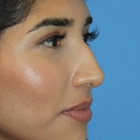
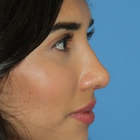
Full-side view
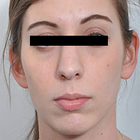
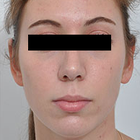
Front view
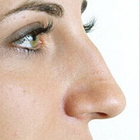
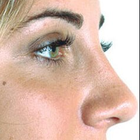
Full-side view
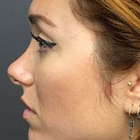
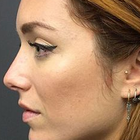
Full-side view
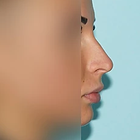
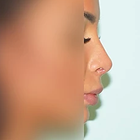
Full-side view
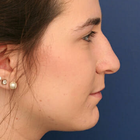
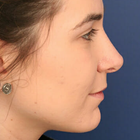
Full-side view
WHY US?
At Medijump, we're making medical easy. You can search, compare, discuss, and book your medical all in one place. We open the door to the best medical providers worldwide, saving you time and energy along the way, and it's all for FREE, no hidden fees, and no price markups guaranteed. So what are you waiting for?

Free

Best Price

Widest Selection

Risk-Free
What you need to know about Nose Surgery in Belgium
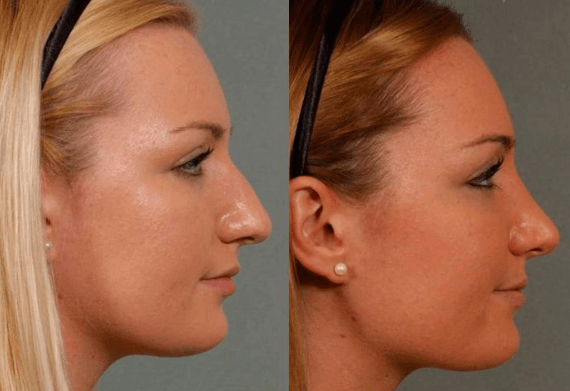
Commonly referred to as a Rhinoplasty, it is the medical term for reshaping of the nose or corrective surgery of the nose. It is one of the most common facial plastic surgeries (Facelift) procedures performed. Nose surgery can be performed to change the consequence of genetics, birth defect or nasal injury. It can be performed to enhance the appearance and/or to improve nasal breathing.
Surgery can be performed to correct nasal humps, the curvature of nose-bridge, nose tip irregularities, and asymmetry in the nostrils. The nasal appearance can be altered in various ways using intra-nasal chisels. Nose surgery procedures generally fall under three types: open rhinoplasty, closed rhinoplasty, and tip rhinoplasty. Rhinoplasty is normally performed under general anesthesia and will not leave any visible scars on the nose.
What does a Nose Surgery Procedure Involve?
Nose surgery is an individualized surgery. Before the surgery, you will need to discuss important factors with your surgeon to determine if it is suitable for you. Your surgeon will review your medical history, including your previous surgeries, medical conditions, and any medications you are taking. You will need to have a complete physical examination, such as blood tests. Your surgeon will also consider your other facial features, the skin on your nose, and what you would like to change or correct. Then, your surgeon will develop a customized plan for you. Two weeks before and after surgery, avoid any medications that contain aspirin or ibuprofen, such as Advil and Motrin IB because these medications can increase bleeding. You will need to also stop taking herbal remedies and over-the-counter supplements. If you are an active smoker, stop smoking because smoking can slow your healing process and increase the risk of getting an infection.
During the actual surgery, you will be given either local anesthesia or general anesthesia. The type of anesthesia depends on how complex the surgery is and what the surgeon would prefer to use. Then, the surgery will start by making incisions inside your nose or at the base of your nose between your nostrils. Your surgeon will reshape the inner bone and cartilage underneath your skin to make a more pleasing appearance.
There are several ways to change the shape of your nasal bones or cartilage, depending on your nose’s structure and how much needs to be removed or added. If only small changes are required, your surgeon may use cartilage taken from deeper inside your nose or your ear. However, for a much larger change, your surgeon may use cartilage from your rib, implants, or bone from other parts of your body. When the changes are finished, your surgeon will place the nose’s skin and tissue back. The incisions will be closed by stitches.
How Long Should I Stay in Belgium for a Nose Surgery Procedure?
If everything goes well, you can go back to your hotel on the same day once the effects of anesthesia wear off. However, you will need to stay in a recovery room for a few hours so the staff can monitor you. Some people may need to stay in hospital overnight. After you are discharged from the hospital, you will need to stay in Belgium for at least 10 to 14 days for initial recovery, follow-up checkups, and for the stitches to be removed.
What's the Recovery Time for Nose Surgery Procedures in Belgium?
The recovery period for nose surgery can be different from person to person. In general, 2 to 3 weeks is needed until you can get back to your full normal routine and 3 to 6 weeks until you can do any strenuous activity. However, you should be able to go back to work within a week, except if your job requires strenuous physical activity. You will feel gradually better each day in the first week. You will experience swelling, which can take six months to subside. The only people who will notice the swelling is you and your surgeon. Your final nose shape will be apparent after it is completely healed.
What sort of Aftercare is Required for Nose Surgery Procedures in Belgium?
After the surgery, you may need to wear a nasal splint for the first week. The splint is used to protect and support your nose. Your nose may be congested due to swelling or from the nasal splint. You need to rest in bed with your head raised higher than your chest to reduce bleeding and swelling. For a few days after the surgery, you may also experience slight bleeding and drainage of mucus. Your surgeon may place a “drip pad” under your nose to absorb drainage.
Your surgeon may ask you to avoid strenuous activity, take baths instead of showers, avoid blowing your nose, eat high-fiber foods to avoid constipation, not to do any facial expressions (smiling or laughing), not wearing pull clothing and wear button-downs instead.
For at least several weeks after the surgery, do not rest eyeglasses or sunglasses on your nose to prevent pressure. You should also wear SPF 30 sunscreen when you are outside because too much sun can cause permanent irregular discoloration to your nose. Do not put anything such as ice or cold packs on your nose even though it is swelling as the swelling will go away faster by limiting your dietary sodium.
What's the Success Rate of Nose Surgery Procedures in Belgium?
Nose surgery is known to have around 80% to 90% success rate. Nevertheless, just like any other surgery, it still has possible risks and complications. These risks are bleeding, infection, numbness, permanent nerve damage, and an adverse reaction to the anesthesia. You should call your surgeon immediately if you suspect any of the symptoms. Other possible risks are difficulty breathing through your nose, uneven-looking nose, persisting pain, swelling, and discoloration, scarring, septal perforation, and the need for a second or third surgery.
For an in-depth analysis of the closed rhinoplasty procedure with before and after images, watch this short video.
Are there Alternatives to Nose Surgery Procedures in Belgium?
If you do not want to undergo surgery, or if it is not suitable for you, you can get filler injections, such as Botox, Juvaderm, and Restylane. They can change the shape of your nose and only require a short visit to the doctor. This method is not painful and needs no incisions or stitches.
Whilst the information presented here has been accurately sourced and verified by a medical professional for its accuracy, it is still advised to consult with your doctor before pursuing a medical treatment at one of the listed medical providers
No Time?
Tell us what you're looking for and we'll reachout to the top clinics all at once
Enquire Now

Popular Procedures in Belgium
Prices Start From $404

Prices Start From $111

Prices Start From $70

Prices Start From $220

Prices Start From $1,945

Prices Start From $192

Prices Start From $500

Recommended Medical Centers in Belgium for Nose Surgery

- Interpreter services
- Translation service
- Religious facilities
- Medical records transfer
- Medical travel insurance
- Health insurance coordination
- TV in the room
- Safe in the room
- Phone in the room
- Private rooms for patients available

- Interpreter services
- Translation service
- Religious facilities
- Medical records transfer
- Medical travel insurance
- Health insurance coordination
- TV in the room
- Safe in the room
- Phone in the room
- Private rooms for patients available

- Interpreter services
- Translation service
- Religious facilities
- Medical records transfer
- Medical travel insurance
- Health insurance coordination
- TV in the room
- Safe in the room
- Phone in the room
- Private rooms for patients available

- Interpreter services
- Translation service
- Religious facilities
- Medical records transfer
- Medical travel insurance
- Health insurance coordination
- TV in the room
- Safe in the room
- Phone in the room
- Private rooms for patients available

- Interpreter services
- Translation service
- Religious facilities
- Medical records transfer
- Medical travel insurance
- Health insurance coordination
- TV in the room
- Safe in the room
- Phone in the room
- Private rooms for patients available

- Interpreter services
- Translation service
- Religious facilities
- Medical records transfer
- Medical travel insurance
- Health insurance coordination
- TV in the room
- Safe in the room
- Phone in the room
- Private rooms for patients available

- Interpreter services
- Translation service
- Religious facilities
- Medical records transfer
- Medical travel insurance
- Health insurance coordination
- TV in the room
- Safe in the room
- Phone in the room
- Private rooms for patients available

- Interpreter services
- Translation service
- Religious facilities
- Medical records transfer
- Medical travel insurance
- Health insurance coordination
- TV in the room
- Safe in the room
- Phone in the room
- Private rooms for patients available

- Interpreter services
- Translation service
- Religious facilities
- Medical records transfer
- Medical travel insurance
- Health insurance coordination
- TV in the room
- Safe in the room
- Phone in the room
- Private rooms for patients available

- Interpreter services
- Translation service
- Religious facilities
- Medical records transfer
- Medical travel insurance
- Health insurance coordination
- TV in the room
- Safe in the room
- Phone in the room
- Private rooms for patients available
Nose Surgery in and around Belgium
Belgium is one of the smallest and most densely populated countries in Europe and has some of Europe’s finest cuisine, including the creamiest chocolates and a wide variation of beers. In addition, it is home to extensive beaches, postcard-worthy dunes, historic cities, and beautiful countryside, with belfries, castles, and carnivals. Belgium has enjoyed a growing reputation for being excellent medical tourism as well as the country boasts immaculate clinical standards. The medical centers in the country offer a wide range of specializes treatments, short waiting time, highly-trained medical professionals, and considerably lower medical costs. Orthopedics and heart surgery are the most sought after procedures in Belgium.
Popular Parts of Belgium
Brussels is the capital of Belgium, as well as home to European Union official seats and NATO headquarters. Here, visitors can see Europe’s grandest squares, visit the beloved statue of a little boy peeing into a basin (Manneken Pis), explore Musées Royaux des Beaux-Arts, and admire the magnificent Grand Palace. Bruges, a pickled Gothic city, is also worth a visit. The key attractions in the city are the 14th-century town hall, the Cathedral of the Holy Savior, and the Belfry Tower. Other popular cities include Antwerp and Ghent. While Antwerp is famous for its fashion and excellent museums, Ghent is best known for its historic quarter and stunning Van Eyck altarpiece in its colossal cathedral.
Weather and Climate in Belgium
Belgium has four distinct seasons. Summer in the country is relatively short, starting in July and ending in August. The season is warm, with bearable heat and some intermittent rain. Winter comes in November and extends until March. It can get rather wet and chilly during this season, with an average temperature of around 3 - 7°C. Spring (April – June) and autumn (September – October) are generally nice and warm, with an average temperature of around 10 - 15°C.
Getting around in Belgium
The main international airport in Belgium is Brussels Airport. It serves flights to many major cities around the world, including Copenhagen, Doha, London, New York, Atlanta, Casablanca, and Bangkok. Since Belgium is a small country, there are no domestic flights. The public transport system in the country is extremely well-organized and reasonably priced. The best way to get around the country is by train. The trains are affordable, fast, frequent, very punctual, and have a comprehensive network of lines. Buses tend to be used in conjunction with train services, so you will likely need a train-bus combination when traveling, especially to rural areas. Inside cities, the transport systems are centered on buses, but there are also metro and trams in Brussels and Antwerp. Taxis are plentiful in all cities and ensure to hire metered official taxis, which have standard fares.
Tourist Visas in Belgium
Belgium is part of the Schengen Area, so nationals of EU/EEA countries do not need a visa to visit the country regardless of their length of stay or purpose of travels. Citizens of 62 countries, including Canadian, Australian, and US nationals, can stay in the country without a visa for up to 90 days. Belgium Visa for Medical reasons is available for people who need to obtain medical care in the country.
Additional Information
- Local Currency: Belgium adopted the euro (€) in 2002. The exchange rate from US$1 is around €0.85 (€1 is around US$1.17).
- Money & Payments: All towns and cities have cashpoints that are compatible with international banking networks. Credit Cards, particularly MasterCard and Visa, are widely accepted in major cities and towns. Always have some cash on you when traveling to smaller villages. Tipping is not standard practice but appreciated.
- Local Language: Dutch, German, and French are the official languages in Belgium. English is widely spoken.
- Local Culture and Religion: About 65% of the population is Christian, with a large portion adhere to Roman Catholicism. There are also some small communities of Jewish, Muslim, and Buddhist.
- Public holidays: Some important public holidays in Belgium include New Year’s Day, Easter Monday, Ascension Day, Whit Monday, Independence Day, and Christmas Day.
Popular Searches
- Plastic Surgery in Thailand
- Dental Implants in Thailand
- Hair Transplant in Thailand
- Breast Augmentation Thailand
- Gastric Sleeve in Thailand
- Gender Reassignment Surgery in Thailand
- Laser Hair Removal in Bangkok
- Botox in Bangkok
- Dermatology in Bangkok
- Breast Augmentation in Bangkok
- Coolsculpting in Bangkok
- Veneers in Turkey
- Hair Transplant in Turkey
- Rhinoplasty in Turkey
- Stem Cell Therapy in Mexico
- Rhinoplasty in Mexico
- Liposuction in Mexico
- Coolsculpting in Tijuana
- Rhinoplasty in Korea
- Scar Removal in Korea
- Gastric Sleeve in Turkey
- Bone Marrow Transplant in India
- Invisalign in Malaysia
- Plastic Surgery in the Dominican Republic
- Tummy Tuck in the Dominican Republic
- Plastic and Cosmetic Surgery in Poland
- Rhinoplasty in Poland
- Hair Implant in Poland
- Dental Implants in Poland
- IVF in Turkey






